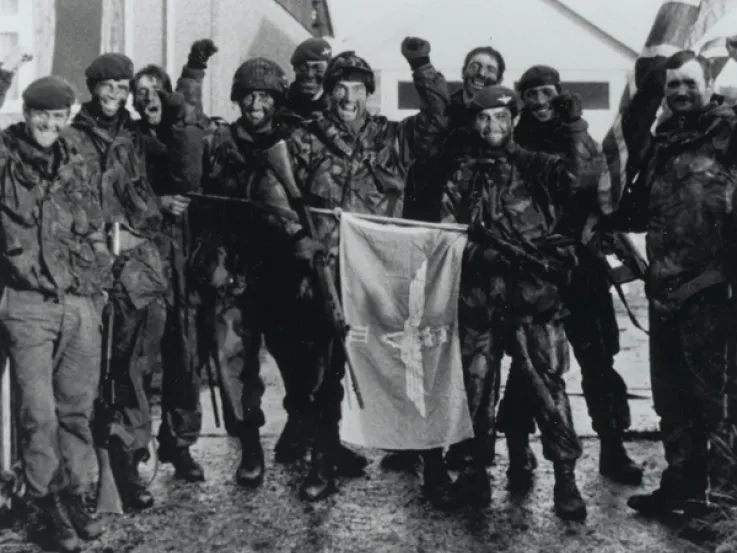Falklands at 40

Providing gun cover for troops coming ashore, San Carlos, 1982 (© Paul RG Haley)
Discover the story of the Islanders whose lives were altered by the Falklands War. This special display pays homage to the brave souls of the British Task Force, but also showcases the optimism and vibrancy of a community with a thriving future.
The Falkland Islands lie in the South Atlantic Ocean, around 400 miles east of South America and 8,000 miles from the United Kingdom.
The British established a military garrison there in 1765. Subsequent French and Spanish missions were short-lived, and an Argentine military party arrived in late 1832. The Royal Navy swiftly evicted them with no loss of life, and Britain has continuously governed the Islands ever since.

Argentine prisoners pass wrecked aircraft, Goose Green, 1982
The people of the Falkland Islands enjoyed a peaceful existence until 2 April 1982, when Argentine forces invaded. After 74 days, they were liberated by a British task force.
Since then, the Falklands has experienced significant progress and development. It is now a self-governing, democratic and financially self-reliant UK Overseas Territory, where the locals can exercise their universal right to self-determination.
A unique area of scientific interest, the Falklands has seen substantial economic and cultural growth. However, none of this would have been possible without the incredibly brave sacrifices made by those who worked, fought and died to liberate the Islands 40 years ago.

The Falkland Islands today (© Matt Fowler)

